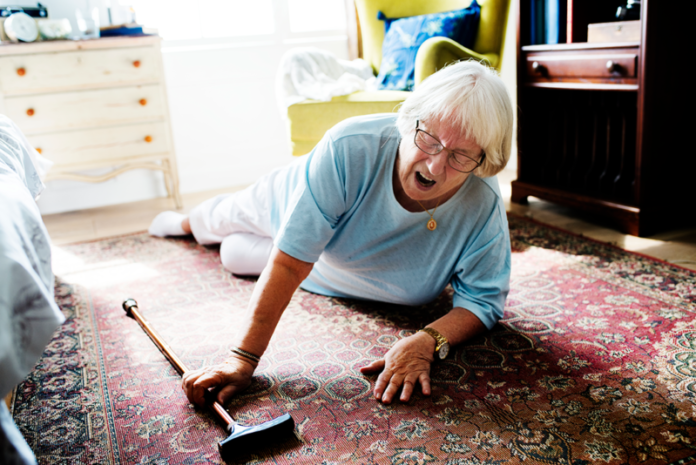Greater Manchester is leading the way in healthy ageing as the first region in the world to pilot innovative eFalls technology. This new digital system helps GPs identify older adults who are at moderate risk of falling in the future so they can receive early support to prevent injuries and maintain their independence.
Falls are a serious health concern, with one in three people over 65 experiencing at least one each year. A fall often results in complex injuries, hospital stays and a loss of confidence.
The eFalls pilot was launched in Greater Manchester in February 2025 and will run for nine months. It is a world-first as this is the first time this system has been used outside the research settings at the Universities of Leeds and Birmingham. The pilot is being delivered by NHS Greater Manchester in collaboration with local primary care networks and academic partners.
It is being rolled out in the South Wigan Ashton North (SWAN) primary care network which covers around 37,000 people and is focusing on identifying those who have a moderate risk of falling in the future. Patients are flagged using data from their GP records. The eFalls tool searches within the digital GP systems, using indicators such as frailty scores, falls history, medications, and long-term conditions. These searches puts patients in different risk categories. During the pilot period, searches are being run by the NHS Greater Manchester data team. The long-term aim is for the toolkit to be fully embedded in GP IT systems, allowing practice teams to run the searches in just a few clicks.
Patients identified as at a moderate risk of falling are invited for a health check and offered a place on the clinically proven Falls Management Exercise (FaME) Programme. These classes help improve strength, balance and confidence. Patients may also be referred for eyesight checks and other preventative support. The pilot is testing the implementation process which means identifying the right patients and supporting them into effective interventions like the FaME programme.
Dr Nikesh Vallabh, GP and Clinical Director for the SWAN Primary Care Network, said: “This approach shows the power of combining local insight, strong neighbourhood partnerships and evidence-based tools. By identifying those most at risk, we can connect them with trusted, community-based services like FaME. It’s a proactive, personalised model that supports independence and reduces pressure on the wider health system.”
Chris Todd, Professor of Primary Care and Community Health at the University of Manchester and Healthy Ageing Theme Lead for NIHR ARC Greater Manchester, said: “Falls are a serious concern as we age but the good news is they can often be prevented. There’s strong evidence that strength and balance programmes like FaME make a real difference. The eFalls tool helps us find the right people at the right time, offering them a chance to take part in something that supports their health, mobility and overall wellbeing.”
Professor Andrew Clegg, Professor of Geriatric Medicine at the University of Leeds and developer of the eFalls tool, added: “It’s fantastic to be part of this pioneering work. Greater Manchester has delivered a global first by applying the eFalls tool in primary care settings, using everyday electronic health records to proactively identify those at risk.
“What usually takes over a decade to reach patients has happened in under 12 months by using the Greater Manchester Care Record. It’s an incredible achievement and testament to the outstanding GM team.”







